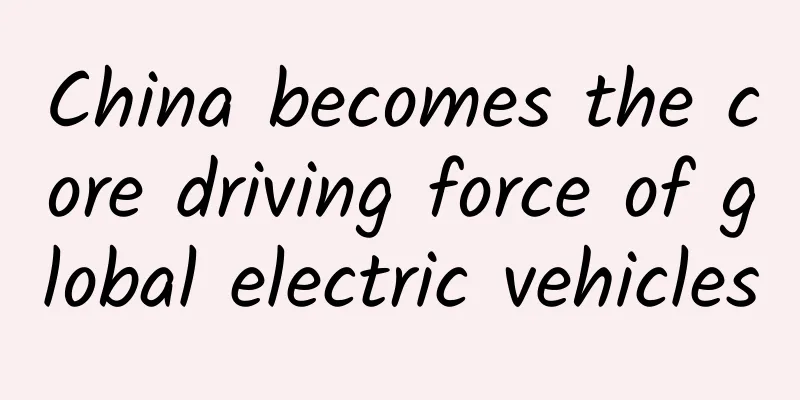China becomes the core driving force of global electric vehicles

|
Meanwhile, the rapid development of China's auto industry is continuously shifting to new energy vehicles. The China Society of Automotive Engineers said that by 2030, the market share of electric vehicles and plug-in hybrid vehicles in China will reach 50%. By 2020, the number of new energy vehicles is expected to reach 5 million, including plug-in hybrid vehicles, electric vehicles and fuel cell vehicles. A recent research report published by the China Society of Automotive Engineers set ambitious goals for China. Horst Binnig, CEO of German Tier 1 automotive supplier Rheinmetall Automotive, said: "Now and in the future, the Chinese automotive market will play a very important role in the promotion of electric vehicles in the country and even across borders." For more than 20 years, the company has been committed to the Chinese market, with 5,000 employees generating sales of nearly 1 billion euros. Rheinmetall Automotive also confirmed the clear trend of the Chinese market's steady transition to new energy sources. The global supplier's product range extends from electrical components for hybrid drives, such as variable auxiliary components or pumps, to products for all-electric propulsion. Today's products include battery trays for electric vehicles or special housings for integral electric motors, which Rheinmetall Automotive will produce locally in China in the near future. Mr Binnig said: “The automotive technology sector is paying attention to China and will continue to do so in the future, with many important data showing that the world’s largest automotive market will once again play a leading role in the electric vehicle sector.” In fact, the Chinese government is currently strictly enforcing new EU-style emission standards, such as those now in force in Beijing and Shanghai. In addition, the corporate average fuel consumption (CAFC) requirement is to be reduced from 6.7 l/100 km in 2016 to 5 l/100 km in 2020, and then continue to decline to only 4 l/100 km by 2025. This will almost inevitably require major manufacturers to launch innovative hybrid drive systems. New energy vehicles are an area of Chinese government support, as reflected in the controversial “super target” for fuel-efficient vehicles with a fuel consumption of less than 2.8L/100km, and new energy vehicles (NEVs). From 2018, the subsidy threshold for NEVs will likely be 5%, climbing to 12% in the following two years. At the same time, China is working to expand the network of charging stations along major transportation routes. In addition, all new buildings must have electric vehicle charging stations. One in ten of all existing parking spaces must be converted to allow charging. All in all, China is planning to add 4.8 million charging stations by 2020. In addition, China is vigorously promoting the purchase of electric vehicles at the national, regional and municipal levels. Such incentives are not only reflected in the price of the vehicle, including purchase and motor vehicle taxes, but also involve the issue of license plates, which are of greater concern, especially in large cities. In addition, there are incentives in terms of charging vehicles. The capital Beijing is also a pioneer in this regard, focusing on the promotion of all-electric vehicles (EV). The measures taken by the state also have a great impact on the automobile industry itself. According to the resolution of the State Council in October last year, vehicle manufacturers considering investing in new production bases in China will find it difficult to obtain approval if their production lines do not include electric vehicles. Currently, 11 Chinese companies have obtained electric vehicle production licenses. Mr. Horst Binnig said: "The Chinese government's broad-based action plan combined with "shared mobility" or new vehicle use arrangements will help promote the Chinese electric vehicle market and consolidate China's pioneering role as the world's most important automotive market. We are convinced that what happens in China tomorrow will have a profound impact on the international automotive industry." As a winner of Toutiao's Qingyun Plan and Baijiahao's Bai+ Plan, the 2019 Baidu Digital Author of the Year, the Baijiahao's Most Popular Author in the Technology Field, the 2019 Sogou Technology and Culture Author, and the 2021 Baijiahao Quarterly Influential Creator, he has won many awards, including the 2013 Sohu Best Industry Media Person, the 2015 China New Media Entrepreneurship Competition Beijing Third Place, the 2015 Guangmang Experience Award, the 2015 China New Media Entrepreneurship Competition Finals Third Place, and the 2018 Baidu Dynamic Annual Powerful Celebrity. |
<<: IPTV and OTT: A protracted battle between government control and public demand on the big screen
Recommend
Case analysis: Techniques for attracting new customers through paid content!
Since 2016, the concept of "micro-course&quo...
Rexxar: Douban's thoughts on hybrid development
Some time ago, Douban open-sourced its hybrid dev...
Testin APPBase: A head-to-head battle in the collaborative office app market
Whether the collaborative office APP itself is st...
Details of ZUK phone revealed, is it going to be an Android version of iPhone?
"If the ZUK phone and the next generation iP...
The fusion of brand advertising and performance advertising!
There is a logic that says that we should use the...
This is the Nth pain point of iOS: I couldn’t agree more
Apple will hold its annual Worldwide Developers C...
How does Pinduoduo achieve user growth?
Since 2017, remarks about the arrival of the ceil...
Zhuzhou Mini Program Franchise Company, how much does it cost to join a mechanical equipment mini program?
How much does it cost to join the Zhuzhou Mechani...
Honda Aircraft Company Reaches 250th HondaJet Delivery
Honda Aircraft Company (HACI), Honda's aircra...
The Birth of the Earth's "Sculptor"
The movement of glaciers constantly "carves&...
Short Video Academy·Director Shooting and Editing Core Course, master the two practical skills and underlying thinking necessary for video creation
Short Video Academy·Director Shooting and Editing...
Are smart children genetic or "chicken baby"? These twin studies show that it's not simple
In today's era where education is extremely i...
GAC Aion: From January to December 2022, Aion's cumulative sales volume reached 271,000 units, a year-on-year increase of 126%.
GAC Aion announced that it delivered 10,206 new c...
How should we write copy in 2018?
Another year has passed, and another year of writ...
Why the EU's investigation into Chinese cars is bound to "shoot itself in the foot"
The global automotive industry is undergoing a tr...



![[2021 Summer] Senior 3 Physics Target A+ Model Physics Chapter Progress](/upload/images/67cc200003c9f.webp)





